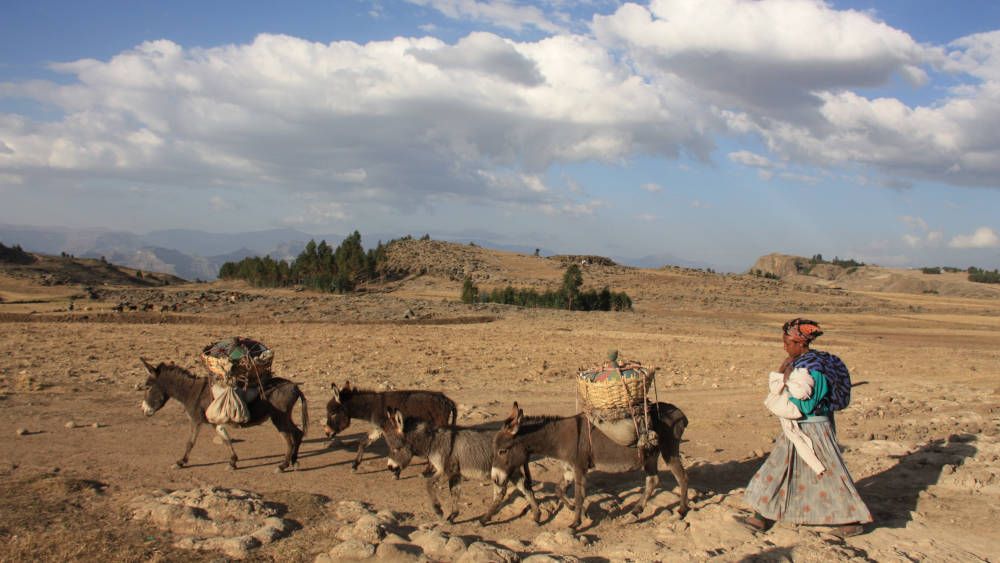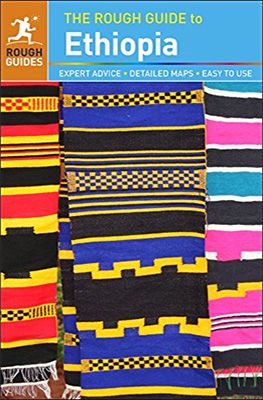In the north of Ethiopia there are several hiking areas. Most famous are the Simien Mountains, the Tigray area or the area around Lalibela. The rural area around Lalibela is ideal for hikers of an intermediate level. Here, it is certainly possible for someone who goes walking regularly to do a beautiful multi-day trek. A hike at Lalibela gives you the unique chance to meet the locals.
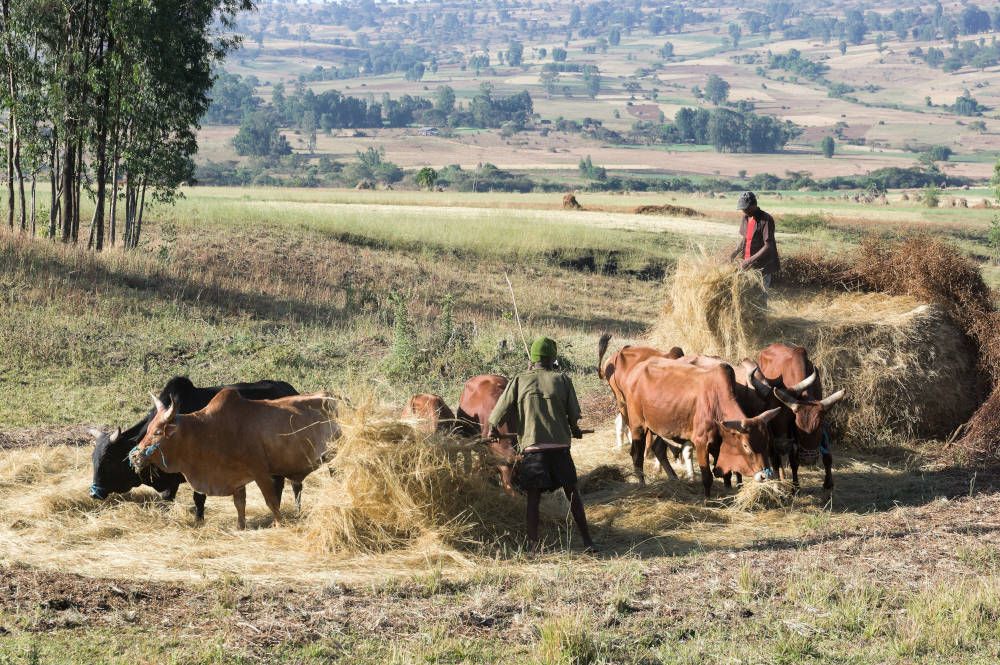
A three-day hike at Lalibela
The treks are from 2 to 6 days and can be adapted to the wishes of the hiker. You will travel through a rural area with an English-speaking guide and a couple of donkeys to carry the luggage.
The hike we describe here is in the Basalt Mountains near Lalibela and takes a total of three days. The beauty of this trek is that the accommodation and food is provided by the locals. In this way, you are supporting the inhabitants of these areas. It is also a delight for the participants to get acquainted with the population. The groups are small. It is the ideal opportunity to get acquainted with the daily life of this beautiful region. You will definitely get the chance to view a simple home of some residents.
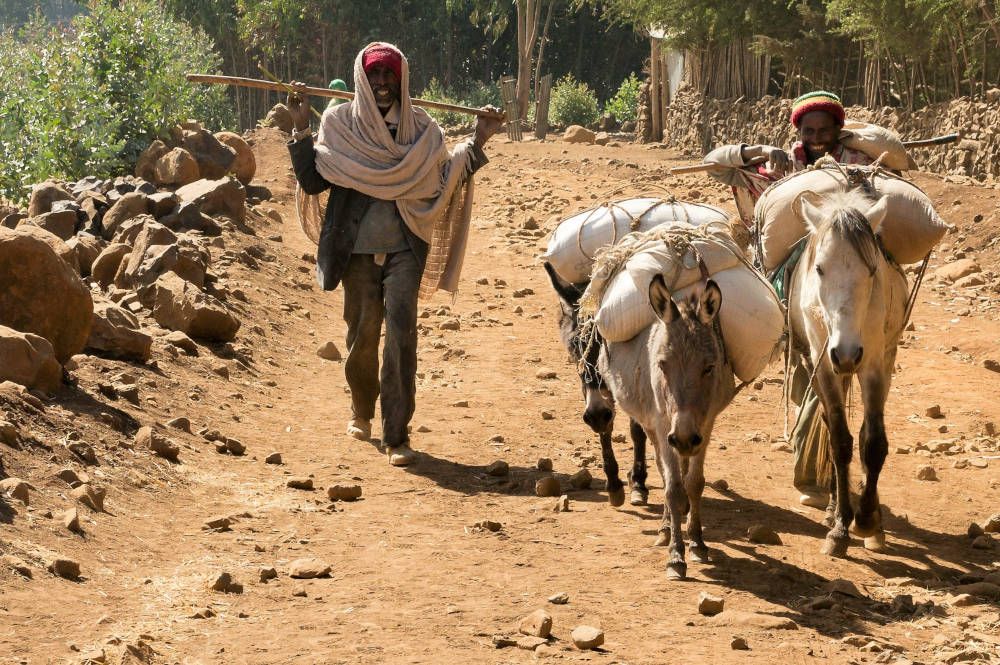
Day 1 – Walk on the Mequet plateau
On the Mequet plateau, you can walk for about 4 hours on the first day. You start at the Werkhaye Mariam community. After lunch you walk along small paths, often accompanied by residents of the area, to your accommodation. In the basalt mountains around Lalibela, the population mainly leads a farming life.
Time seems to have stood still here. Oxen pull the farmer’s carts and plough the fields. There is no agricultural machine involved, let alone a tractor. With their hands the farmers put the tef-lots in the ground. Teff, also known as Abyssinian love grass, produces a kind of grain that is an important source of nutrition for the Ethiopians. Everything is planted by hand and later also harvested by hand.
Life for the farmers is hard, but they have a sincere smile and love for receiving their guests. In the tukults (the local huts) the beds are ready and for the welcome, the women have baked cookies for the visit. Dinner is also provided by the community. They are happy to offer you a glass of a soft drink or a beer. Overwhelmed by all you’ve seen, you’ll fall asleep on a simple bed in the hut.
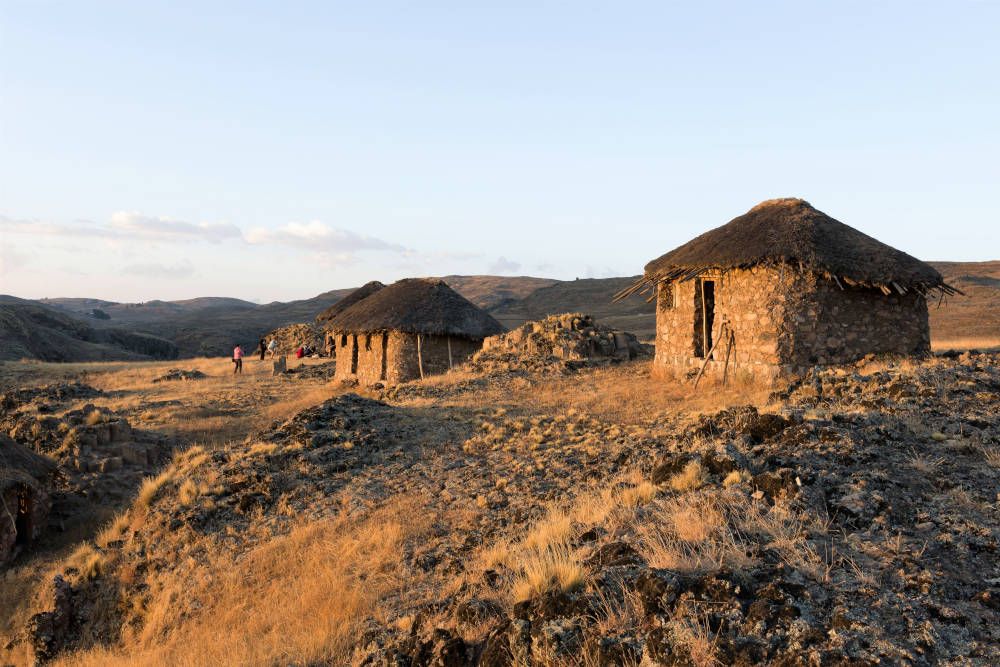
Day 2 – To Wajela
The second day, you leave after breakfast for a full day of walking to get to Wajela. This day the walk is about 7 hours, but you have enough breaks on the way to take in your surroundings. The Mequet plateau offers dazzling views.
With a bit of luck, you’ll come across the Gelada baboons, the only monkey species that eats grass. If you sit quietly during a rest, you have a good chance that some vultures will fly by. Buzzards, ravens and many other birds float along the ridge of the gorge. They spy your bread and want to steal it from your hands.
The number of visitors in this area is much lower than on the famous routes in the Simien Mountains. In addition, you have much more of a chance to be in contact with the locals.
Upon arrival in Wajela, the women have already baked the cookies, made the tea and made the beds. Enjoy a fantastic sunset here.
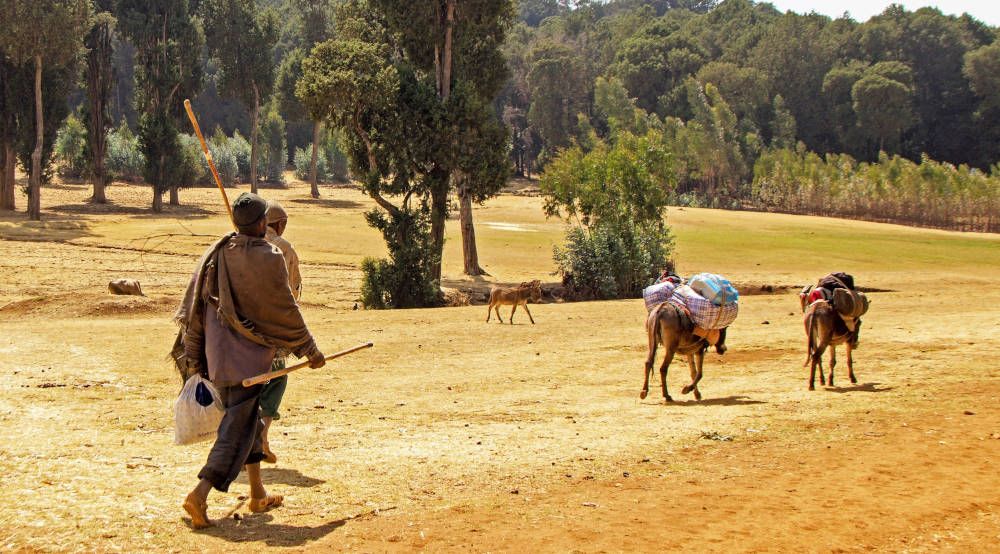
Day 3 – From Wajela to Aterow
Just like the shepherd boys and their cattle, you walk along the shepherd’s paths. Today it is still about 7 hours walking. On the way, you meet the farmers who come from the market or from a wedding. They love it when you pay attention to them and drink a cup of coffee with them.
You can have special encounters during this trek. You will certainly notice that the friendly and curious people wave as if you were the first tourist. The walking is done at a gentle pace and there is regularly time for a break.
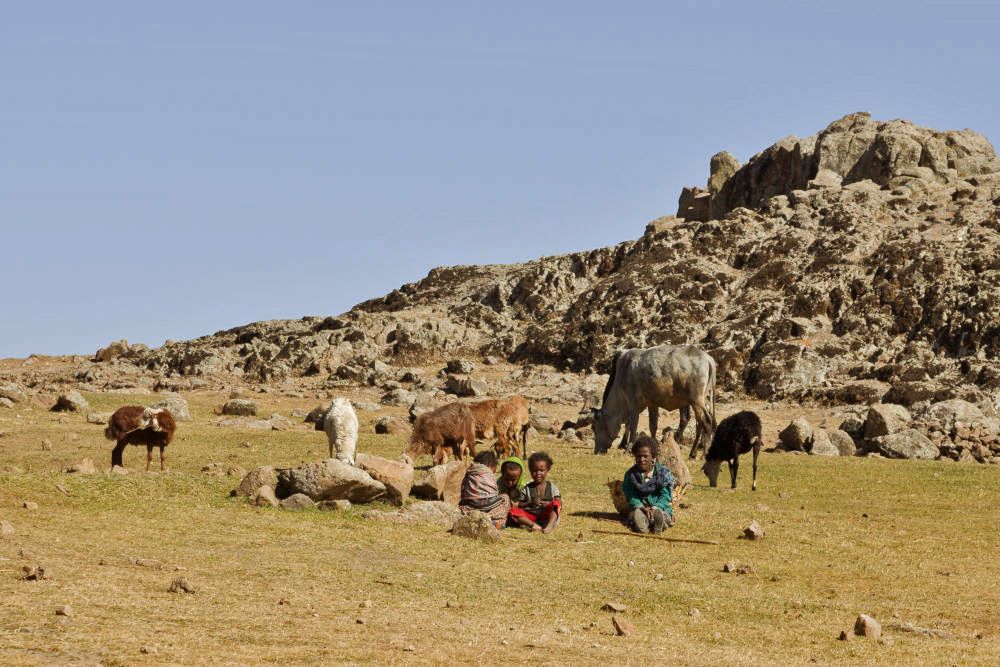
Practical matters for a hike at Lalibela
- The costs for this described trek are between €75 and €100 per day per person. This includes full board, donkeys for the luggage and the guide.
- You can arrange with the guide where you want to start with the multi-day walk around Lalibela. This can be in Lalibela or Gondar, but also on the main road.
- The West Mequet route you walk at an altitude of 2700 to 3000 metres and is less difficult than the East Mequet route where you are at an altitude of 2700 to 3600 metres. You should also take into account the effect that the height will have on your body. Read our blog about preventing altitude sickness.
- For the nights, it is good to remember how cold it will be.
- The tukuls are primitive and you don’t have a shower for three days, although the residents will be happy to provide you with a bucket of hot water.
- This is an excellent way to get to know and experience rural life. And if you don’t feel like walking, you can also rent a horse with an Ethiopian guide.
- If you want to do a trek of a few days it is important to find out what suits you and what level you prefer.
- You can book this tour at Tesfa Tours. Tesfa Tours is committed to the local population and the development of tourism in Ethiopia. When you book a trek here, 55% of the price goes to the community that takes care of the accommodation and the food.
